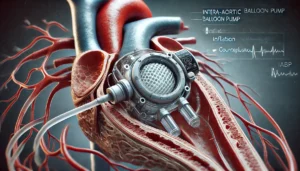
Innovative Balloon-Inflatable Venous Cannula for Enhanced Cardiopulmonary Bypass in Minimally Invasive Cardiac Surgery
This study introduces the Aulus venous cannula, a novel device for minimally invasive cardiac surgery (MICS) designed to improve cardiopulmonary bypass (CPB). The cannula features heparin coating and internal balloons for superior and inferior vena cava occlusion, reducing external manipulation. Preclinical tests, including ex-vivo and large animal studies, demonstrated effective anticoagulation, precise positioning, and favorable safety outcomes, highlighting its potential for clinical use.




